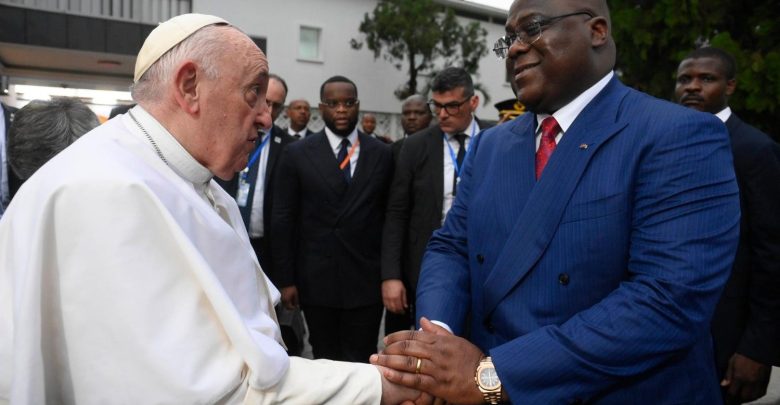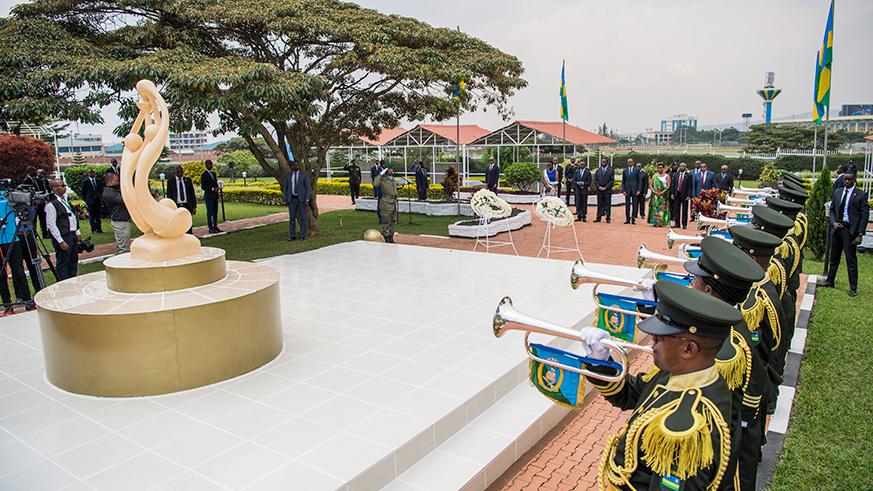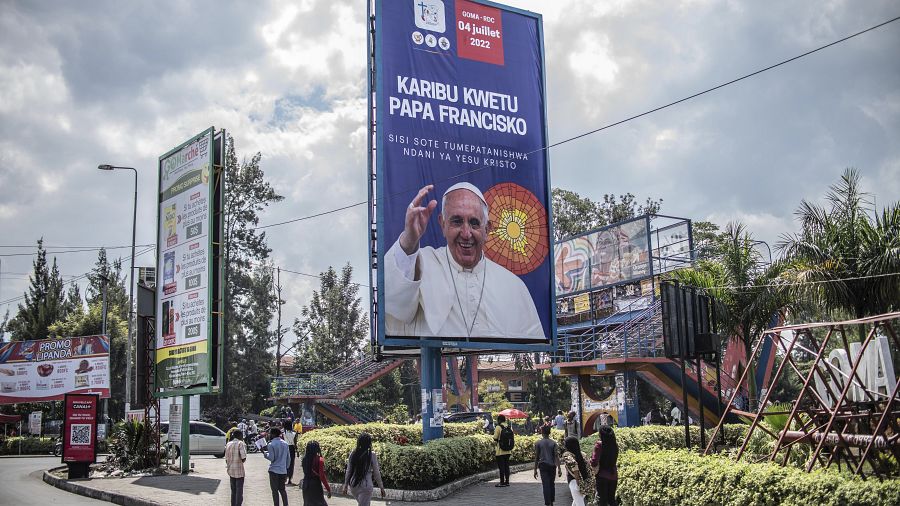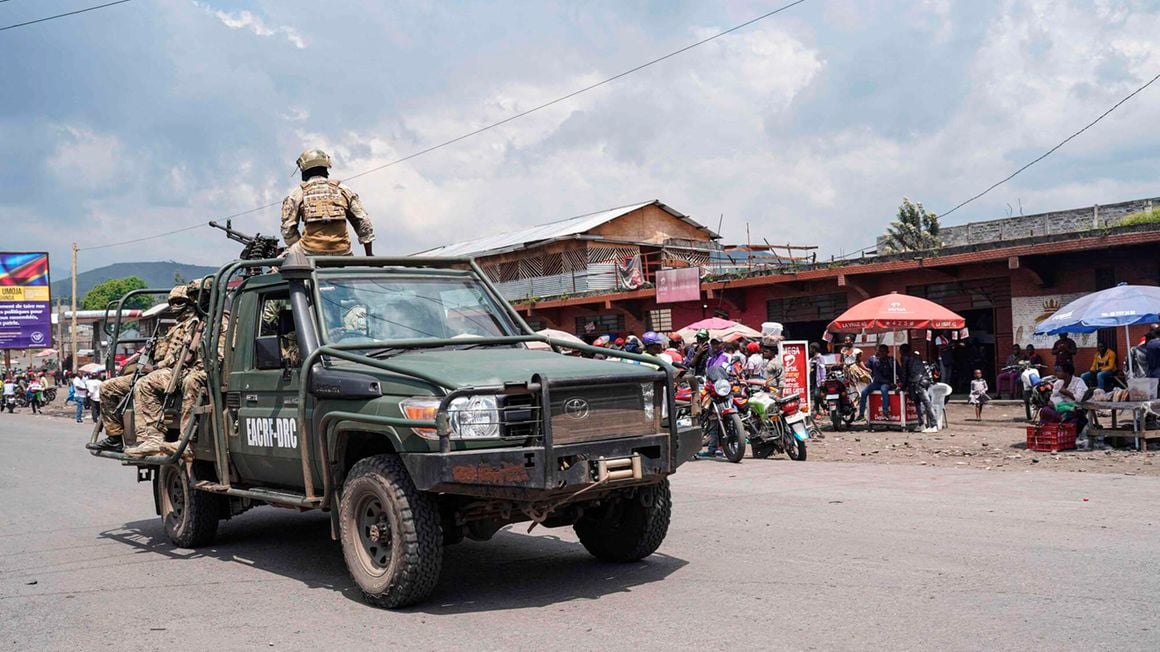Regional
Pope in DRC: will he boldly call out the Catholic Church on Genocide?

Pope Francis arrived in
Kinshasa on January 31, marking his first trip in the great lakes region. He met
with civil and government authorities, victims of conflict in the eastern DRC,
and the Church’s local ministers. His arrival comes at a time when the region
is facing a security crisis, including a looming genocide in eastern DRC.
The region had a similar
visit from the head of the Catholic Church when in September 1990, Pope John
Paul II visited Rwanda. At the time, some low key massacres of the Tutsi were
ongoing.
Today, another Pope is
back in the region, at a time when a Genocide against the Kinyarwanda-speaking
Congolese is simmering in the country he is visiting, DRC.
Hate speech has led to
ongoing persecution and genocide against the Kinyarwanda speaking Congolese who
are also an ethnic minority in the DRC.
Hate speech is a
preparatory stage of a Genocide. The advancement of social media technology
made it easy for the authors of this hate speech, some of whom are members of
the Catholic Church, to broadcast their poison targeting the Congolese Tutsi.
The Kinyarwanda-Speaking
Congolese have been victims of such hate speech since the colonial era. Today, hundreds
of thousands of them are being murdered in the DRC. All this has happened in
the face of the Catholic Church, sometimes or all the time, aided and abetted
by clergymen.
As the head of the
prominent and influential Catholic Church, his choice may fix DRC if he speaks
blatantly and calls out the hate speech against the Kinyarwanda-speaking
Congolese. If not, his silence will be very damaging.
Silence of the Catholic Church in face of a Genocide
The Lay Coordination
Committee (CLC) is a non-governmental organization affiliated with the Roman
Catholic Church in DRC.
The Roman Catholic Church
is the most powerful and respected religious institution in DRC. It has
approximately 35 million members and is well embedded across the DRC, even in
remote areas.
It is perhaps the sole
institution filling the gap in the provision of public services due to the
absence of the state. Due to the fragility of the state, the Roman Catholic
Church and, in particular, the CLC have usually taken the side of the
oppressed, ordinary Congolese population. Its voice therefore counts more than
those of DRC’s political figures. This influence applies even when it makes
ungrounded statements.
However, this has not
been the case when it comes the Kinyarwanda-speaking Congolese. Sadly, CLC
contains a common assertion that Kinyarwanda-speaking Congolese “must be dehumanized
and disowned as they are not Congolese.”
Their narrative has since
been backed by the Catholic Bishop of Uvira, Monseigneur Muyengo, who leads the
church in Uvira-Fizi territories. He so often refers to the
Kinyarwanda-speaking Congolese as aliens that should never own a piece of land
on Congolese territory.
On top of that, the
Catholic Church has participated in these discriminatory acts. In November
2022, the M23 rebels issued a statement warning of an imminent genocide against
Congolese Tutsi communities, being planned by a coalition of the FARDC and
armed groups like the genocidal FDLR and Mai-Mai.
According to the
statement, in Masisi, the coalition warned all Congolese Citizens of Tutsi
ethnic to gather in medical centres and parishes, and those who do not were
told they would be killed.
How can the Catholic
Church be part of these massacres and offer their parishes for such deeds and
allow such discrimination?
Beyond the Catholic
Church, the DRC has more prominent officials like Member
of Parliament Eve Bazaiba, Adolphe Muzito, a former Prime Minister, and Martin
Fayulu, an opposition leader, have all implied that granting any rights to the
Kinyarwanda-Speaking Congolese – from nationality to land rights – poses a
threat to DRC.
All
these hateful and discriminatory acts have been condemned by the UN Special
Adviser on the Prevention of Genocide, Alice Wairimu Nderitu, in November 2022,
and January 2023, when she warned about a genocide against Congolese Tutsi
community on the basis of their ethnicity.
What remains unanswered is; the Pope has strong intelligence but to what extent is he going to condemn these acts by the Congolese government, and the Catholic Church?


.jpeg-20221214055432000000.jpeg)




